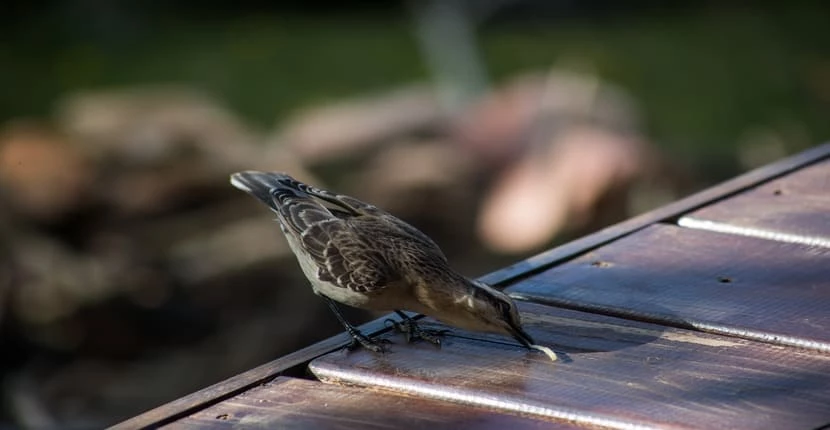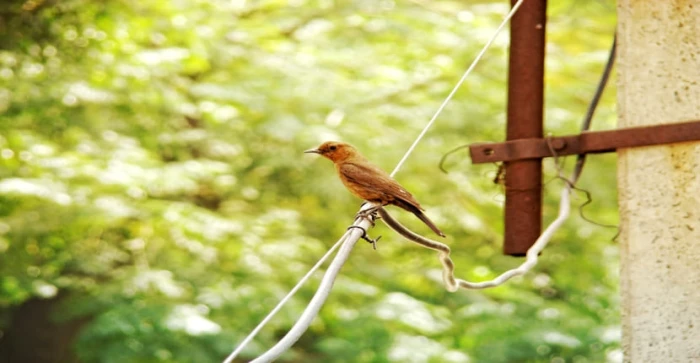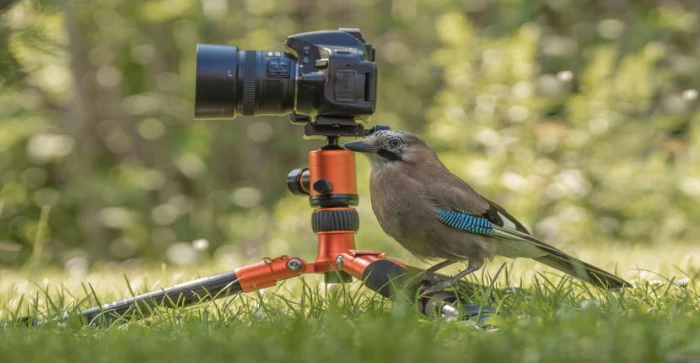
Bird Survey in Windmill Hill
Request a free, no-obligation quote for expert bird surveys todayAt Invasive Weed we specialise in bird surveys in Windmill Hill to support planning applications, land development, and conservation projects while ensuring compliance with UK wildlife protection laws.
Birds and their nests are legally protected, meaning that any construction, tree felling, or land development that may impact nesting sites requires an ecological assessment.
Our team of licensed ecologists conducts breeding bird surveys, wintering bird surveys, vantage point surveys, nesting bird checks, and habitat assessments to help projects proceed legally and responsibly.
For a bird survey in Windmill Hill and across the UK, contact us today for a free consultation.
What Is the Bird Survey Process in Windmill Hill?
The bird survey process begins with an initial site assessment in Windmill Hill, where ecologists inspect the site to identify key habitats, nesting areas, and bird activity. This is followed by field surveys & monitoring in Windmill Hill, which involve direct observation, bird call recordings, and flight pattern monitoring to accurately assess species presence and population density.
During the Data Collection & Species Identification in Windmill Hill phase, ecologists record species numbers, behaviour, and habitat use, helping to determine potential conservation concerns.
Finally, a comprehensive report is produced in Windmill Hill, detailing findings and providing recommendations on mitigation measures, licensing requirements, and potential planning constraints to ensure compliance with environmental regulations.

What Types of Bird Surveys Are Available in Windmill Hill?
Bird surveys include breeding and wintering assessments, flight pattern monitoring, nesting checks, habitat evaluations, and mitigation planning in Windmill Hill.
These surveys in Windmill Hill also include:
Breeding bird surveys (BBS) in Windmill Hill – Assess nesting species and breeding activity during spring and summer to prevent disturbance during development.
Wintering bird surveys (WBS) in Windmill Hill – Monitor migratory and overwintering species, particularly in wetlands, estuaries, and coastal areas.
Vantage point surveys (VPS) in Windmill Hill – Track bird flight patterns over large areas, crucial for wind farms, airports, and power lines.
Nesting bird checks in Windmill Hill – Conduct pre-construction inspections before tree felling, vegetation clearance, or other activities to ensure compliance with nesting protection laws.
Habitat assessments for birds Windmill Hill – Evaluate site suitability for bird populations and integrate bird-friendly measures into development plans.
Mitigation & conservation plans in Windmill Hill – Develop strategies such as buffer zones, artificial nesting sites, and habitat restoration to protect bird populations.
How Much Does a Bird Survey Cost in Windmill Hill?
Bird survey costs range from £300 to £6,000+ in Windmill Hill, depending on survey type, site complexity, and required visits.
A basic nesting bird check, typically conducted in Windmill Hill before tree felling or construction, costs between £300 and £900.
A Breeding Bird Survey (BBS) in Windmill Hill, which requires multiple site visits during the nesting season (March–August), can range from £1,000 to £3,000, depending on the survey effort required.
Wintering bird surveys (WBS) in Windmill Hill, used for assessing migratory and overwintering bird populations, typically cost between £1,500 and £4,000. Vantage point surveys (VPS), which monitor bird flight patterns, especially for wind farm developments, can range from £3,000 to £6,000 in Windmill Hill due to longer observation periods.
Additional costs may apply for mitigation plans, licensing, habitat restoration, and follow-up monitoring in Windmill Hill (£500–£1,500 per visit).
Contact Invasive Weed in Windmill Hill to get customised pricing for bird survey projects in targeted biodiversity.
Is a Permit Required for a Bird Survey in Windmill Hill?
A bird survey should assess the potential impact of a development project on nesting birds or protected species, and a Mitigation License from Natural England in Windmill Hill or the relevant conservation authority may be necessary.
The Wildlife and Countryside Act of 1981 and the Birds Directive 2009 in Windmill Hill say that it is illegal to destroy or disturb a wild bird's nest while it is in use, to kill or hurt a Schedule 1 protected bird species (like a barn owl, a peregrine falcon, or a kingfisher), or to damage important bird habitats without taking the right steps to make things better.
How Long Does a Bird Survey Take in Windmill Hill?
Bird surveys take from a single visit to over a year in Windmill Hill, depending on survey type, seasonality, and project scope.
Nesting bird checks can be completed in a single visit, typically within one to two weeks of scheduling in Windmill Hill. Breeding bird surveys (BBS) require multiple visits over several months between March and August in Windmill Hill, as birds nest at different times.
Wintering bird surveys (WBS) in Windmill Hill take place between November and February, often requiring multiple observations to track migratory behaviour. Vantage Point Surveys (VPS) involve longer monitoring periods, sometimes extending over six to twelve months in Windmill Hill.
To avoid project delays, we recommend planning bird surveys well in advance and ensuring they align with seasonal survey windows.

What Are the Environmental Considerations in a Bird Survey in Windmill Hill?
Bird surveys approach includes mitigation strategies in Windmill Hill such as creating buffer zones, restoring bird habitats, and installing artificial nest sites to maintain species populations. We also ensure compliance with conservation laws in Windmill Hill, helping developers integrate biodiversity protection measures into their projects.
By implementing environmentally responsible strategies, we support both wildlife conservation and sustainable development.
Contact Invasive Weed in Windmill Hill to get detailed information on the bird surveys in targeted biodiversity.
We cover Windmill Hill (Bristol)
